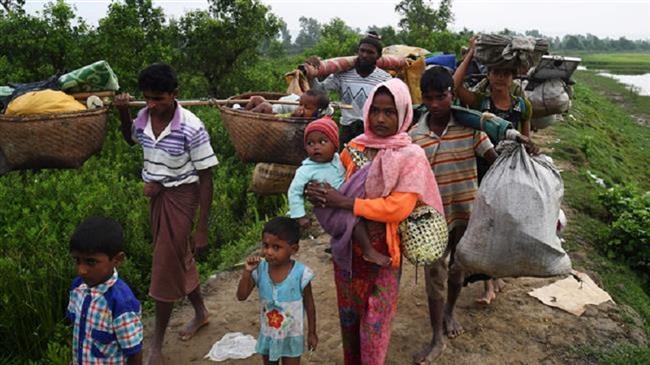
RNA - The Myanmarese government said on Monday that it had established a new “independent” commission to investigate the “allegations” of human rights abuses in Rakhine State — where the Rohingya had been primarily located — despite the mountain of evidence indicating “systematic ethnic cleansing” against the minority Muslims, Asia News reported.
The government has previously established other inquiries — only to conclude that no violations had taken place.
The new body includes, among others, senior adviser to Myanmar’s president, Aung Tun Thet; the former chair of Myanmar’s constitutional tribunal U Mya Thein; former Philippine deputy foreign minister Rosario Manalo; and Japan’s former UN representative Kenzo Oshima.
The government did not provide further information, including about the commission’s powers or the time frame it has been given to complete a potential report.
Sean Bain, a legal adviser to the International Commission of Jurists (ICJ), has criticized the appointments.
Such commissions, he wrote on Twitter, “tend to be ad hoc, rarely if ever lead to prosecution & fail to provide redress. Impunity results, undermining justice & emboldening perpetrators”.
Myanmar-based analyst David Mathieson also condemned the move, calling it a “political gimmick”.
“Given the weight of evidence collected by Amnesty International, the UN and the media, this CoI (Commission of Inquiry) is tantamount to a rude gesture, not a genuine inquiry,” he said, adding that the move could only “collide with a military covering up ethnic cleansing”.
According to Fars News Agancy, Human Rights Watch Myanmar researcher Rich Weir said the country would use the new body as “distractions and shields from criticism and pressure”, as it did with the previous such inquiries.
A coordinator for the London-based Free Rohingya Coalition, Nay San Lwin, said Myanmar had been forming inquiry, investigation, and advisory commissions since 2012, none of which “found any solution for the Rohingya, but mostly advocated for the government and military”.
He added that the former Advisory Commission on Rakhine, led by former UN secretary general Kofi Annan, “only advised”.
The government did not even implement the recommendations made by that commission, he said.
Other state-run commissions also claimed the military had not committed any crimes against the Rohingya people, Lwin added.
Myanmar launched a military offensive in August last year while the ensuing violent crackdown has forced nearly 700,000 Rohingya to flee Rakhine state for neighbouring Bangladesh.
Since August 2017, Myanmar's security forces committed nine distinct types of crimes against humanity, including murder, torture, deportation, rape, persecution, enforced disappearance and forced starvation, Amnesty's report said, as it put the responsibility on the army's top ranks.
847/940